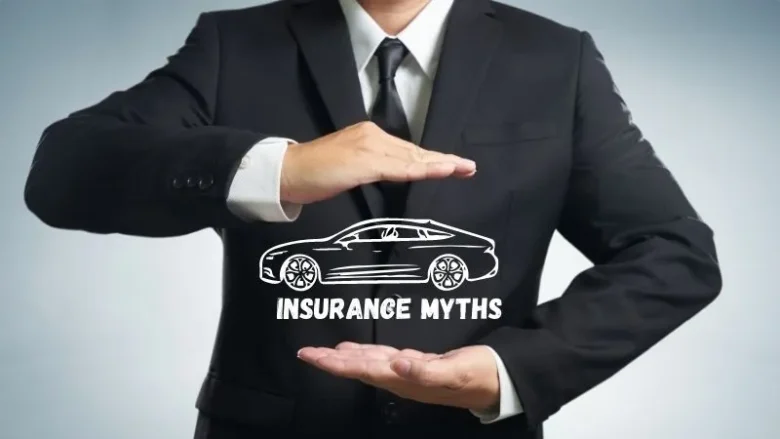Everyone who drives needs car insurance, but there are many misconceptions about this. Misunderstandings can lead people to make bad decisions. Understanding what car insurance covers and how it works can help you make the best decision for you and your car. Here’s the truth behind some of the most common car insurance myths.
Red Cars Are More Expensive to Insure:
One of the biggest myths about car insurance is that red cars cost more. Many people believe that red cars are more expensive to insure because they are flashy and associated with speeding. The color of your car does not affect the cost of your insurance. Insurance companies base premiums on the make, model, age and safety features of the car. The vehicle color is not taken into account. If you are unsure about purchasing this bright red sports car, you are not going to spend more money on it.
Comprehensive Insurance is Not Required for Older Cars:
Myth: After a certain vehicle age, comprehensive insurance is no longer necessary. Some people believe that outdated cars should only be covered by liability insurance because they don’t deserve full coverage. Comprehensive coverage and collision coverage are based on the value of your car, not its age. If the make, model or condition of your old car still has value, comprehensive insurance may be worth it to cover you. If your car is stolen, vandalized or declared a total loss, liability insurance may not cover the cost of repairs.
If Someone Else Drives Your Car, Their Insurance Covers the Damage:
When someone else is involved in an accident while driving their own car, many people assume that the driver’s insurance will pay for the damages. In most cases, car insurance applies to the car and not the driver. If someone else is driving your car and causes an accident, your insurance will pay for the damages, even if the other driver is insured. Lending out your car can have serious financial consequences if an accident occurs.
Car Insurance Covers Your Belongings:
A common misconception is that car insurance covers laptops and smartphones stolen from your car. Unfortunately, auto insurance typically covers vehicle damage, but not personal property. Personal items taken from your vehicle may be covered by your homeowners or renters insurance. You should check your coverage to see what is covered.
You Only Need Minimal Liability Coverage:
Another myth is that statutory minimum liability insurance provides comprehensive protection. The minimum coverage may meet legal requirements, but rarely covers all accident-related costs. Medical bills, property damage, and legal fees can quickly exceed basic coverage limits, leaving you in financial trouble. Consider comprehensive coverage to protect yourself in the event of a major accident.
Your Credit Score Does Not Affect Insurance Rates:
Many people don’t know that credit scores influence car insurance premiums. Insurance companies take credit scores into account when setting premiums. A lower credit score indicates risk, which can increase the price of insurance. However, strong credit can lower premiums. Maintaining a good credit score can help you get loans, credit cards, and affordable insurance rates.
New Cars Are Always More Expensive to Insure:
There is a general belief that new cars are more expensive to insure. Premiums for new cars may be higher due to their value, but many include improved safety features and technology that can reduce insurance costs. Lane departure warning systems, automatic emergency braking and anti-theft equipment help prevent accidents and theft, reducing the price of insurance. New cars are not always more expensive to insure than older cars.
Insurance Rates Automatically Increase After An Accident:
Many people think that the price of their insurance will increase after an accident, even if it was not their fault. Although incidents involving error may increase the number of accidents, not all accidents will increase. Many insurance companies’ accident forgiveness programs do not increase your rates after your first accident. If you have no debt, your rates should not increase. Contact your insurance company to find out how they handle accidents and what factors affect your premiums.
Insurance Premium Depends on Your Car:
Some people believe that only the type of car you have affects your insurance premiums. The make and model of your car will affect your insurance premiums, but other criteria are just as important. Driving record, location, age and credit score all affect your premiums. Even if you own a luxurious or powerful car, a good credit score and safe driving record will lower your insurance premiums.
You Don’t Need Auto Insurance if You Don’t Drive Often:
Some people think they don’t need car insurance or get minimal coverage if they rarely drive. Even if you drive occasionally, you must have car insurance. Whether you drive every day or rarely, accidents can happen. No matter how long you drive, adequate coverage can protect you from financial loss in the event of an accident.
Conclusion:
Car insurance is complex and myths and misconceptions are common. Debunking these myths can help you choose the right coverage. Whether you drive often or rarely, you need the right car insurance to protect yourself, your passengers and your car. Know the facts and choose coverage that meets your needs, not misconceptions.
FAQs:
1. How does my credit score affect how much I pay for car insurance?
Insurance companies take your credit score into account when deciding what rate to charge you.
2. Will my rates automatically increase after an accident?
This was not always the case. There are many insurance companies that will forgive you for first-time accidents or accidents that are not your fault, which may not increase your premiums.
3. Do I need to take out full insurance for my old car?
If your old car still has value, or if you want to protect yourself against damage not caused by an accident, comprehensive insurance may be worthwhile.
4. Does my car insurance cover items stolen from my car?
No, most car insurance policies do not cover personal items. You may need to get renters or homeowners insurance for this.
5. What does the color of my car have to do with my insurance rates?
No, the color of your car does not change the cost of your insurance.




